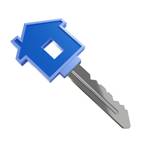 Considering buying a house is a great step in the right direction for many people. Nowadays, more and more of us are renting, but this can often feel like throwing money down the drain. When you pay rent, you’re essentially paying your landlord’s mortgage on the property on their behalf. Alternatively, the mortgage on it may already be paid off, meaning you’re just paying your landlords income every month. When you buy a house, you’re paying into something that you will ultimately own. This is much more rewarding. It also gives you much more security, as you won’t ever have to worry about your landlord selling up or ending your contract to move someone else into the place you call home. Instead, your home will be your own as long as you want it to be. If this sounds good to you, it’s time to get yourself up onto that property ladder. If you’re a first time buyer, you may not be aware of all the steps you will have to take to achieve this. But don’t worry. The following information should help to guide you in the right direction!
Considering buying a house is a great step in the right direction for many people. Nowadays, more and more of us are renting, but this can often feel like throwing money down the drain. When you pay rent, you’re essentially paying your landlord’s mortgage on the property on their behalf. Alternatively, the mortgage on it may already be paid off, meaning you’re just paying your landlords income every month. When you buy a house, you’re paying into something that you will ultimately own. This is much more rewarding. It also gives you much more security, as you won’t ever have to worry about your landlord selling up or ending your contract to move someone else into the place you call home. Instead, your home will be your own as long as you want it to be. If this sounds good to you, it’s time to get yourself up onto that property ladder. If you’re a first time buyer, you may not be aware of all the steps you will have to take to achieve this. But don’t worry. The following information should help to guide you in the right direction!
Figuring Out What Mortgage You Can Afford
The first thing you need to do when considering buying a house is to determine how much money lenders are likely to approve upon your application. This will let you know what size mortgage you’re looking at working with and, consequently, what kind of property you would be able to consider buying. This is also a good way to determine how big a deposit you’re going to have to save before you can start browsing houses on the market. Sometimes, you may find that the total is too low and you may want to focus more on advancing your career and earning more money before you continue your journey to buying a house. Sometimes, you’ll be happy with the amount and can start advancing to the next steps. Whatever the results, this is an essential initial step to get you started out in the right direction. There are various factors that play into how much a mortgage lender will provide you with. Remember that a mortgage is essentially a huge loan. Mortgage lenders are likely to work in an extremely similar way to any other lender – they’ll want a good look at your finances to give themselves confidence that you’re going to be able to pay them back. If they feel that you won’t be able to afford to pay them back, they won’t offer you the cash. This may all sound pretty complex, but a mortgage calculator provides you with a simple and straightforward way to get an idea of what size loan you could be working with. Simply put in the price of the mortgage you’re interested in, the interest rate attached, and the loan term in years. The calculator will then give you a breakdown of the amount you would be expected to repay monthly. You can then see whether you can afford this amount and can adjust your expectations accordingly.
 Determining Your Deposit
Determining Your Deposit
Once you know how much you’re likely to be approved on with your mortgage, you can work out how large a deposit you need to save and get started with your first steps towards actually becoming a homeowner. There’s no single amount that you have to save to afford a mortgage deposit. The figure you’re aiming for will largely depend on the price of the property you’ll eventually take into consideration. Cheaper properties have smaller deposits. More expensive properties require larger deposits. The majority of people try to save around 20% of the overall property price. However, there are also plenty of 90%, 95%, and even 100% mortgages on the market, meaning you could have a 10%, 5% or even no deposit. Just remember that saving a bigger deposit will make your life easier in the long run, as it can reduce monthly mortgage payments for you.
Saving Your Deposit
Once you have a figure in your mind for how much you need to save, you can begin to save for it. Now, you may feel disheartened and as though you’ll never be able to save this much. But where there’s a will, there’s a way. First, you need to find a good quality savings account with a good interest rate. This will provide you with a safe and secure space to deposit money and actually begin to save. Next, you can take various steps to get the show on the road. The first thing you need to do is work out a budget. Sit down with a pen and paper and write down your total income after tax and essential living costs, such as rent payments, food, water, and energy. This will leave you with your disposable income. It’s a good idea to save as much of this disposable income away in your savings account as possible. This will quickly mount up and you’ll get closer and closer to your mortgage deposit in next to no time. Of course, it could take years to save enough, so don’t completely deprive yourself of any treats or luxuries by depositing your whole disposable income every month. You still need to live a life and enjoy yourself. Just put as much in as you comfortably can. Remember that you can cut down on essential costs to have extra money to put into the savings account too! You can cut food costs by cutting down on takeaways, opting for own brand goods or unbranded goods at the store and removing expensive buys from your shopping list. If you’re renting, you could move somewhere cheaper to reduce your rent costs. The sacrifice could be more than worth getting into your owned home sooner. Cut water costs by taking showers instead of baths. Entertain your friends at your home with meals or film nights rather than going out all the time. Consider free activities on the weekends, such as museums or art galleries. If you can get away without having a car, public transport can prove much cheaper. All of these changes will free up more money for that mortgage deposit savings account!
 Getting Started
Getting Started
Saved your deposit? Great news! Now you can start having an actual look for the property you want to purchase. There are all sorts of different things you can do to get started in the right direction. Most people will use buying agents, such as buyers agents at Prosper Group. They take all the hard work off your hands. A consultation will help them to understand what you’re looking for and they’ll be able to find available properties that tick as many of your boxes as possible. Some factors they might want to know include:
- Budget – how much are you willing to spend on a house? What size mortgage will you be approved on?
- Location – where do you want to live? Do you have a particular area in mind? Or are you more open to relocating for the right house? Do you need to be near schools or public transport links?
- Renovations – are you willing to put work into a property? Do you have funds put aside for renovations and work to be done? Or do you want to be able to move straight into a property as it is?
- Rooms – how many rooms would you ideally like in your property? Is this a set amount or is there some leeway?
- Bathrooms – do you require a set number of bathrooms? Do you want an en suite, a wet room or other additional bathroom spaces?
- Garage – do you need a garage? Or will a driveway or on road parking be okay for you?
Putting In An Offer
Found the property of your dreams? It’s time to put in an offer. Chances are, if the property is nice and a reasonable price, there’s likely to be a little competition. The key is to get in fast. Put in a decent offer and chances are the seller will accept quickly for a fast sale. Bartering too hard could lose you the house, as others may put in more reasonable offers and you could lose out to them. This can be a daunting time where you feel on edge waiting for the back and forth between the seller, yourself and different buyers. It’s important that you determine a maximum price you’re willing to bid for the property. This will help you to ensure you don’t get overexcited and spend too much. Never surpass your maximum price.
As you can see, buying a house really is quite a long and complex process. It can see you on a rollercoaster of emotions over a fairly long time. But when you eventually find yourself in the home of your dreams, it will be more than worth all of the effort you’ve put into getting there! Hopefully, the above information has served as a good guide and can get you moving along the way!
You must log in to post a comment.